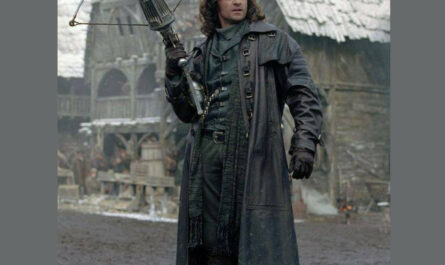In the annals of cinematic history, there are a select few films that stand as true milestones, reshaping the landscape of the industry and etching themselves into the collective consciousness of moviegoers worldwide. Quentin Tarantino’s “Pulp Fiction” is undeniably one of those films. Released in 1994, it brought a fresh and audacious approach to storytelling, redefining the crime genre and making a lasting impact on the world of cinema. At the heart of this cinematic masterpiece were two stellar performances by Bruce Willis and Samuel L. Jackson.
While “Pulp Fiction” showcased the brilliance of an ensemble cast, the on-screen chemistry between Bruce Willis and Samuel L. Jackson remains a standout aspect of the film. Their performances as Butch Coolidge and Jules Winnfield, respectively, elevated “Pulp Fiction” to legendary status. In this article, we’ll delve into the dynamic partnership between these two iconic actors and how their collaboration in “Pulp Fiction” became a pivotal moment in both their careers.
The Tarantino Touch
Before we dive into the on-screen magic created by Bruce Willis and Samuel L. Jackson in “Pulp Fiction,” it’s crucial to understand the context in which this cinematic gem was born. Quentin Tarantino, the enigmatic and visionary filmmaker, had already made a name for himself with his debut feature “Reservoir Dogs.” However, it was “Pulp Fiction” that catapulted him to international acclaim and established him as a true auteur.
Released in 1994, “Pulp Fiction” presented a non-linear narrative that weaved together multiple interconnected stories. The film’s bold, unapologetic dialogue, eclectic soundtrack, and unconventional structure defied the norms of mainstream cinema. Instead of adhering to a linear narrative, Tarantino chose to craft a mosaic of moments that explored themes of crime, redemption, and morality.
At the heart of this narrative were the characters portrayed by Bruce Willis and Samuel L. Jackson, whose performances added depth and gravitas to the film’s rich tapestry.
Bruce Willis: The Cool Underdog
Bruce Willis, already a well-established action star due to his role as John McClane in the “Die Hard” franchise, took on the role of Butch Coolidge in “Pulp Fiction.” His character, a washed-up boxer with a taste for redemption, embodied the film’s theme of second chances.
Willis’ portrayal of Butch was a revelation. It showcased his versatility as an actor, transcending the confines of his action-hero persona. In “Pulp Fiction,” he brought vulnerability, charisma, and a raw intensity to the screen, making audiences root for a character who had flaws and a moral compass that was somewhat askew.
One of the most memorable moments in the film is when Butch returns to his apartment to retrieve his father’s watch, despite the danger it entails. This scene captures the essence of his character, and Willis’ performance infuses it with emotion and authenticity.
Samuel L. Jackson: The Quintessential Jules Winnfield
If there’s one character who left an indelible mark on the world of cinema, it’s Samuel L. Jackson’s Jules Winnfield. As the philosophical hitman who undergoes a transformative journey, Jackson delivered a tour de force performance that is etched into the annals of film history.
Jules’ iconic “Ezekiel 25:17” monologue, delivered with unwavering intensity by Jackson, became one of the most quoted and imitated lines in cinematic history. It exemplified the film’s unique blend of violence and philosophical introspection.
Jackson’s portrayal of Jules was nothing short of revelatory. He seamlessly navigated the character’s complex arc, transitioning from a ruthless enforcer to a man grappling with questions of fate, redemption, and the meaning of life. His ability to convey both menace and vulnerability in a single performance is a testament to his immense talent.
The Dynamic Duo: Chemistry on Screen
What made the performances of Bruce Willis and Samuel L. Jackson in “Pulp Fiction” truly exceptional was the undeniable chemistry between them. Their characters, Butch and Jules, may have inhabited different narrative threads, but their paths inevitably converged in a pivotal moment that would define the film’s climax.
The scene in question occurs in the apartment of Jules and his partner, Vincent Vega (played by John Travolta). As tension escalates, it is Butch who unexpectedly arrives on the scene, setting the stage for a confrontation that will reverberate throughout the film.
The dynamic between Willis and Jackson in this scene is electric. Butch, armed and ready to confront his adversaries, finds himself face to face with Jules, a man who has undergone a spiritual awakening. Their verbal exchange, laden with philosophical undertones and an undercurrent of violence, is a masterclass in acting.
Willis and Jackson’s performances in this scene are a testament to their respective abilities as actors. Willis channels Butch’s determination and intensity, while Jackson infuses Jules’ newfound introspection and spiritual depth into every line of dialogue. Their chemistry elevates the scene to a transcendent level, making it one of the most iconic moments in cinematic history.
The Tarantino Effect: Career Resurgence
While Bruce Willis and Samuel L. Jackson were both established actors before “Pulp Fiction,” the film undeniably had a significant impact on their careers.
For Bruce Willis, “Pulp Fiction” marked a pivotal moment in his filmography. It showcased his ability to take on complex, multi-dimensional characters and helped him break free from the confines of action-hero roles. Following “Pulp Fiction,” Willis continued to pursue a diverse range of roles in films such as “12 Monkeys” and “The Fifth Element,” solidifying his reputation as a versatile actor.
Samuel L. Jackson’s career trajectory post-“Pulp Fiction” is nothing short of remarkable. While he had already made a name for himself in Hollywood, the film catapulted him to a new level of recognition and acclaim. Jackson’s portrayal of Jules Winnfield earned him an Academy Award nomination for Best Supporting Actor, a testament to the power of his performance.
After “Pulp Fiction,” Samuel L. Jackson became one of the most sought-after actors in the industry, collaborating with renowned directors such as Quentin Tarantino, Steven Spielberg, and Spike Lee. His prolific career has seen him take on a wide array of roles, from iconic villains to beloved heroes, cementing his status as one of Hollywood’s most respected and enduring actors.
A Lasting Legacy: The Willis-Jackson Partnership
Following the success of “Pulp Fiction,” Bruce Willis and Samuel L. Jackson went on to collaborate on several other films, further solidifying their on-screen partnership.
In “Die Hard with a Vengeance” (1995), the third installment of the “Die Hard” franchise, Willis reprised his role as John McClane, with Jackson joining the cast as Zeus Carver, a civilian forced into action alongside McClane. The film’s success was in no small part due to the dynamic between Willis and Jackson, as their characters navigated a series of high-stakes challenges together.
Their collaboration continued in “Unbreakable” (2000), directed by M. Night Shyamalan. In the film, Willis portrayed David Dunn, a man who discovers he has superhuman abilities, while Jackson played Elijah Price, a comic book art dealer with a unique connection to Dunn. The film’s thought-provoking exploration of superheroes and villains added a layer of depth to their on-screen partnership.
More recently, Willis and Jackson reunited for “Glass” (2019), a sequel to “Unbreakable.” The film brought their characters back together, along with James McAvoy’s Kevin Wendell Crumb from “Split” (2016), in a thrilling exploration of heroism and villainy. The chemistry between Willis and Jackson remained as compelling as ever, a testament to their enduring partnership.
A Friendship Beyond the Screen
Beyond their on-screen collaborations, Bruce Willis and Samuel L. Jackson share a genuine friendship that extends beyond the world of Hollywood. Their camaraderie and mutual respect for each other as actors have been evident in numerous interviews and public appearances.
Willis and Jackson’s friendship is a testament to the enduring bonds that can form between actors who share the screen. Their ability to collaborate seamlessly on camera while maintaining a close friendship off camera is a rarity in the often competitive world of Hollywood.
In an industry where egos and rivalries can sometimes overshadow artistic collaboration, the genuine friendship between Willis and Jackson serves as a heartwarming reminder that true connections can be forged amidst the glitz and glamour of the entertainment world.
Conclusion: A Legendary Partnership
“Pulp Fiction” remains a cinematic masterpiece that continues to captivate audiences and inspire filmmakers. At its core are the exceptional performances of Bruce Willis and Samuel L. Jackson, whose chemistry on screen brought depth and authenticity to their characters.
Willis’ portrayal of Butch Coolidge and Jackson’s iconic turn as Jules Winnfield are testaments to their talents as actors. Their collaboration in “Pulp Fiction” left an indelible mark on cinema history, reshaping the trajectories of their careers and solidifying their status as Hollywood icons.
The enduring partnership between Bruce Willis and Samuel L. Jackson, both on and off screen, is a testament to the power of collaboration and friendship in the world of entertainment. As fans, we can only hope to see these two cinematic legends come together again in future projects, continuing to grace us with their exceptional performances and undeniable chemistry.



